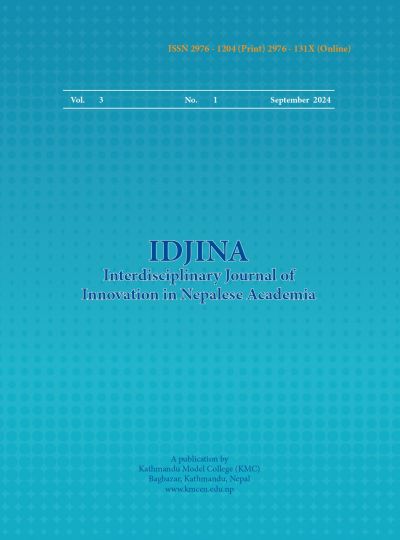Exploitation and Isolation in W.H. Auden’s The Age of Anxiety: An Existentialist Perspective
DOI:
https://doi.org/10.3126/idjina.v3i1.70309Keywords:
Atheism, dread and despair, existential angst, theismAbstract
Existentialism is a philosophical belief that explores the issues of existence and questions on the identities. European ideological concern on existentialism was strongly brought into debate from 1930s to the late 90s. It discusses the views of two distinct groups of the philosophers: the theists, who believe in the existence of God first, and the atheists, who reject this view and propose the existence of humans first. The objective of this paper is to study about individual feelings, fears, and ideas related to socio-economic downfall and the structural loss of social prestige and position. It also deals with exploitation, isolation, domination, deprivation and it raises the questions on identity issues. Poverty, sexual exploitation, injustice and insecurity are the weapons of identity politics to seek the values of ‘I’ in existentialism. This study, applies Jean-Paul Sartre, Friedrich Nietzsche, Martin Heidegger, Soren Kierkegaard, Martin Buber, Gabriel Marcel and Karl Jaspers’ ideas explored in existentialist philosophy as methodological tools to analyze the experiences of Malin, Quant, Emble, and Rosetta in Auden’s ‘The Age of Anxiety.’
Downloads
Downloads
Published
How to Cite
Issue
Section
License

This work is licensed under a Creative Commons Attribution-NonCommercial-NoDerivatives 4.0 International License.
This license allows reusers to copy and distribute the material in any medium or format in unadapted form only, for noncommercial purposes only, and only so long as attribution is given to the creator.




